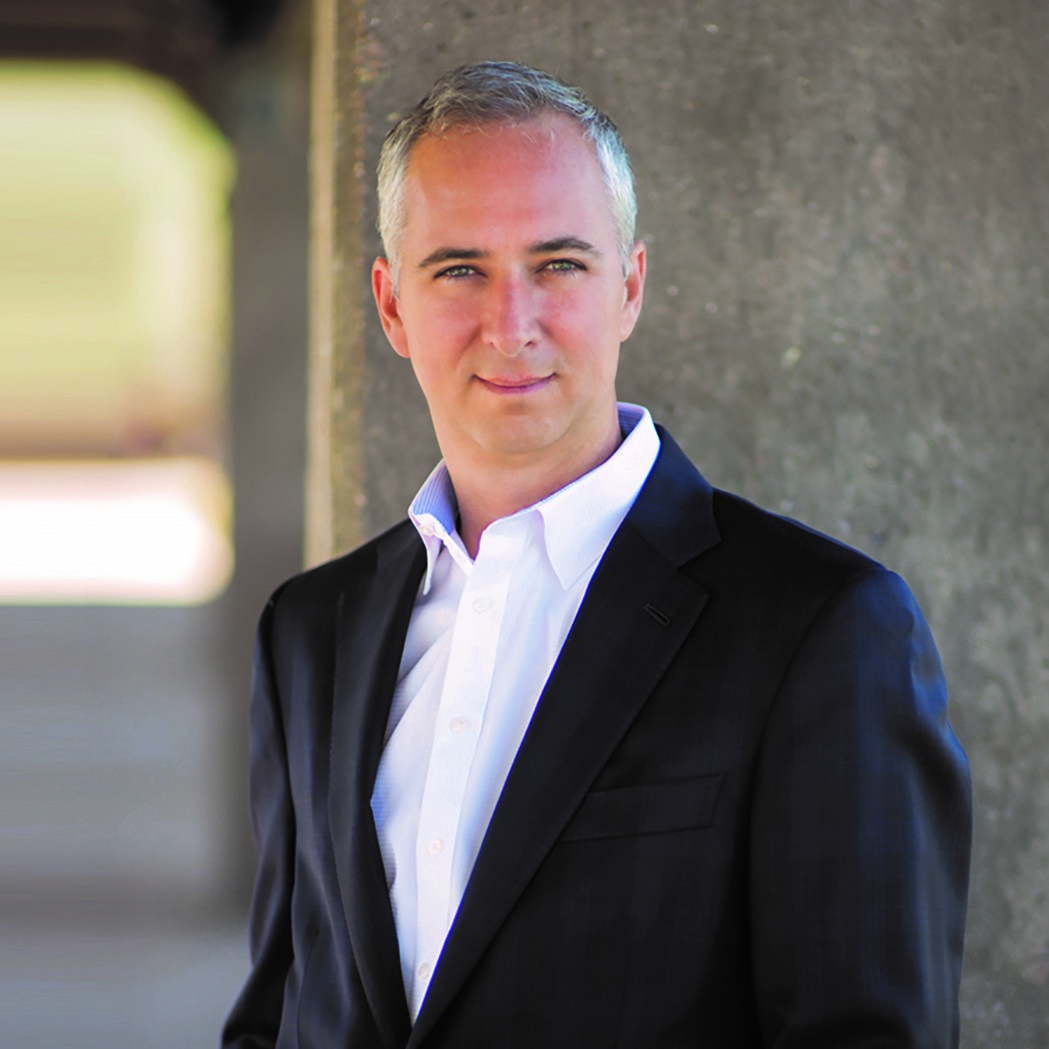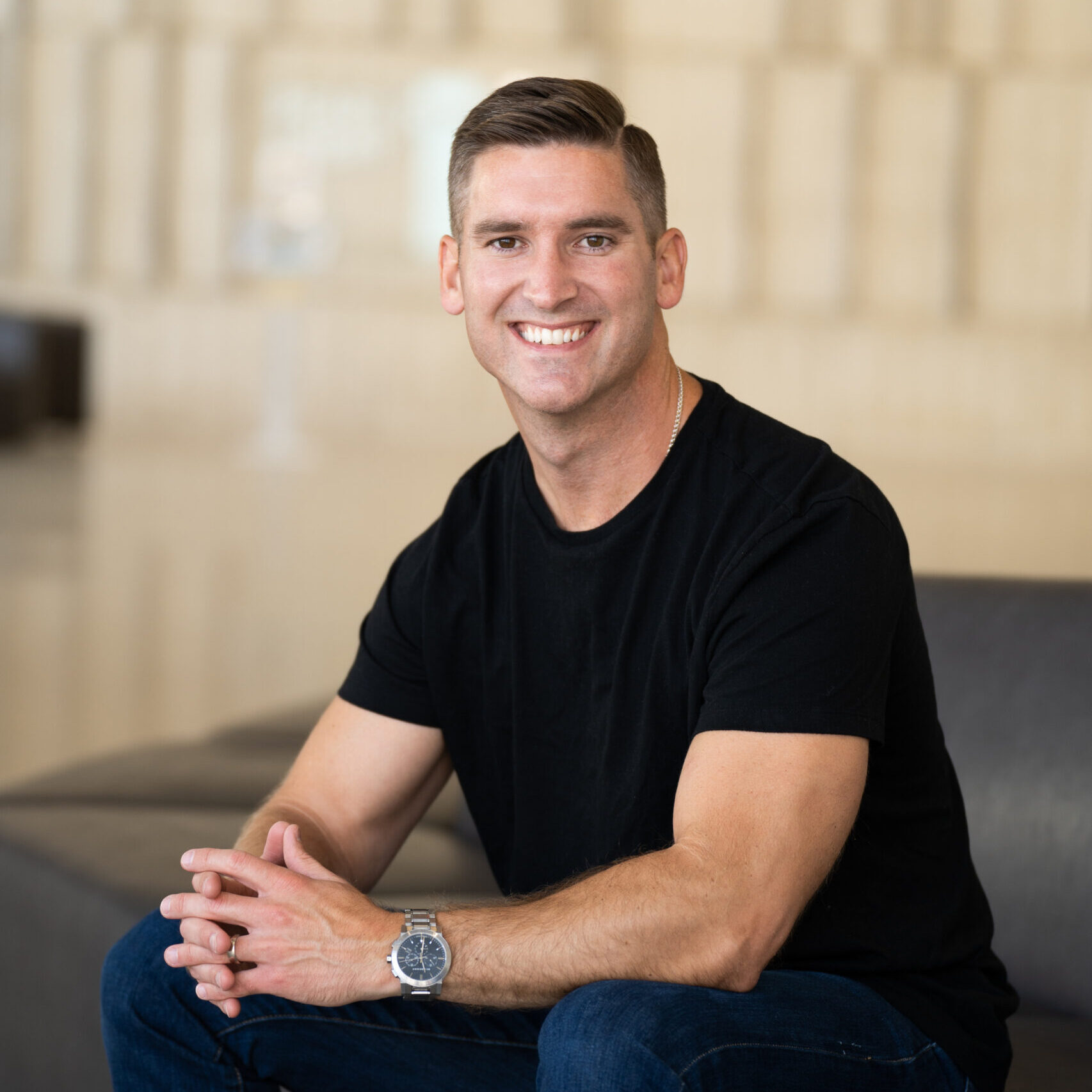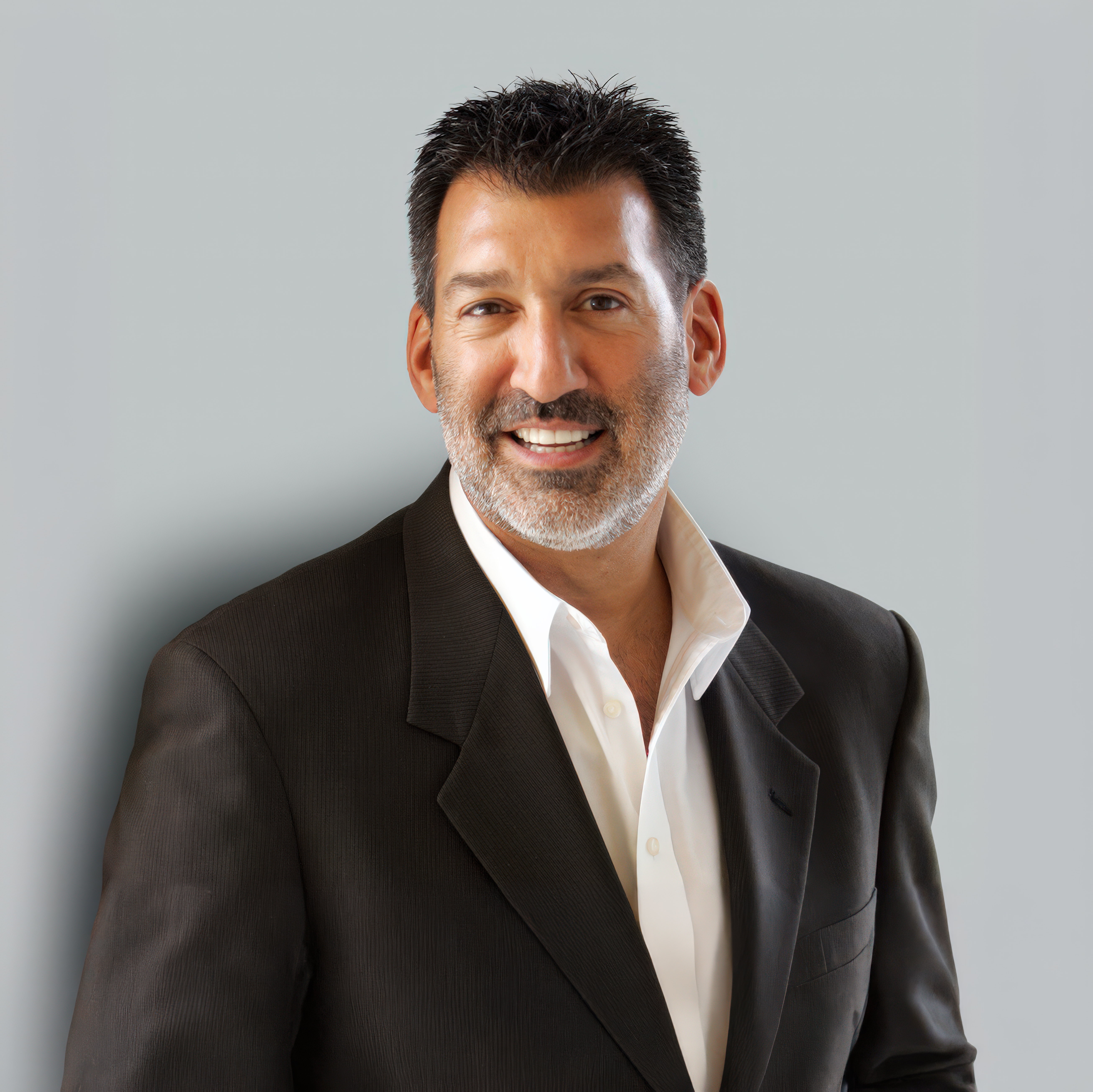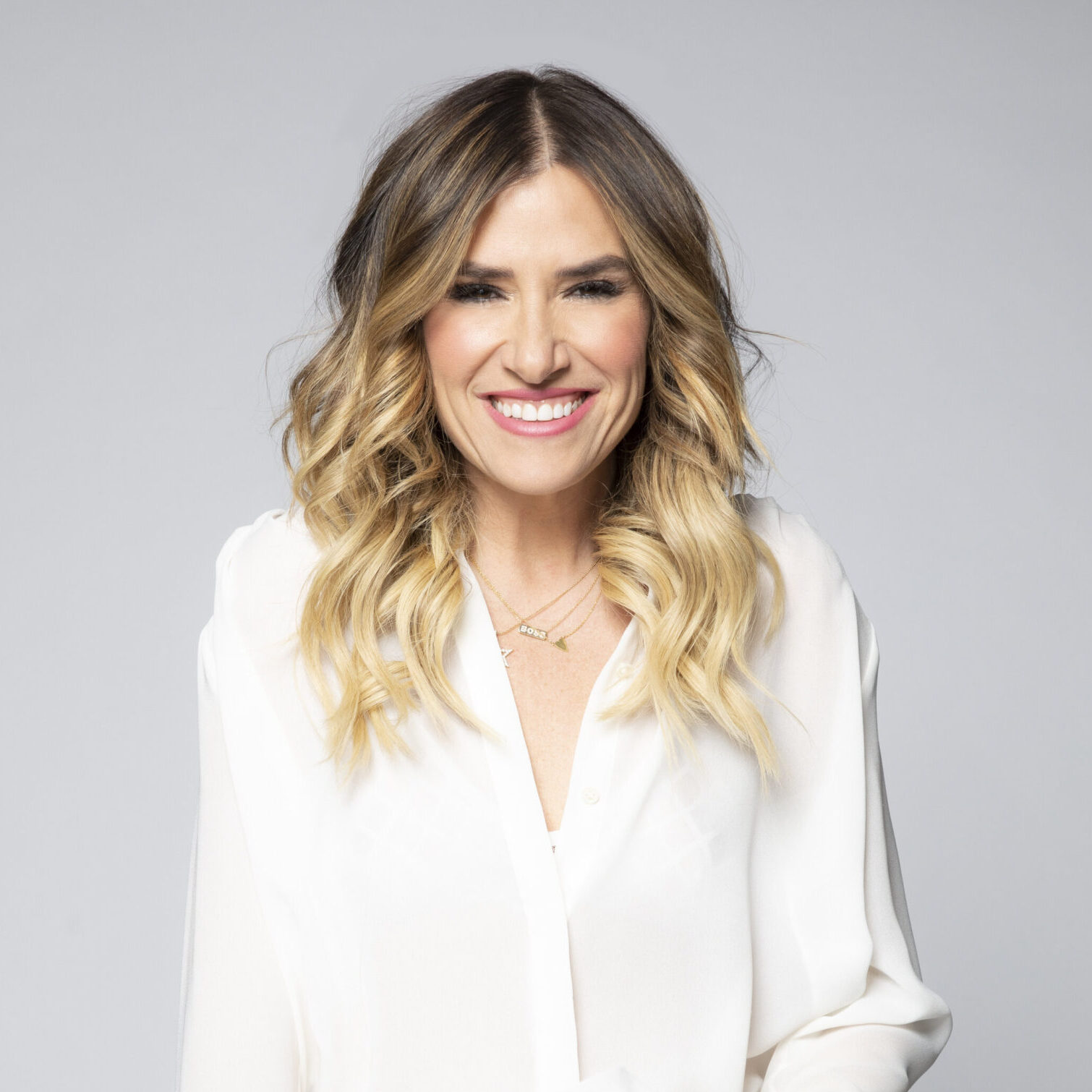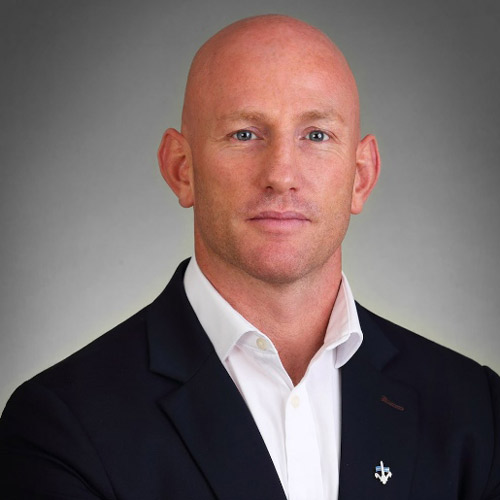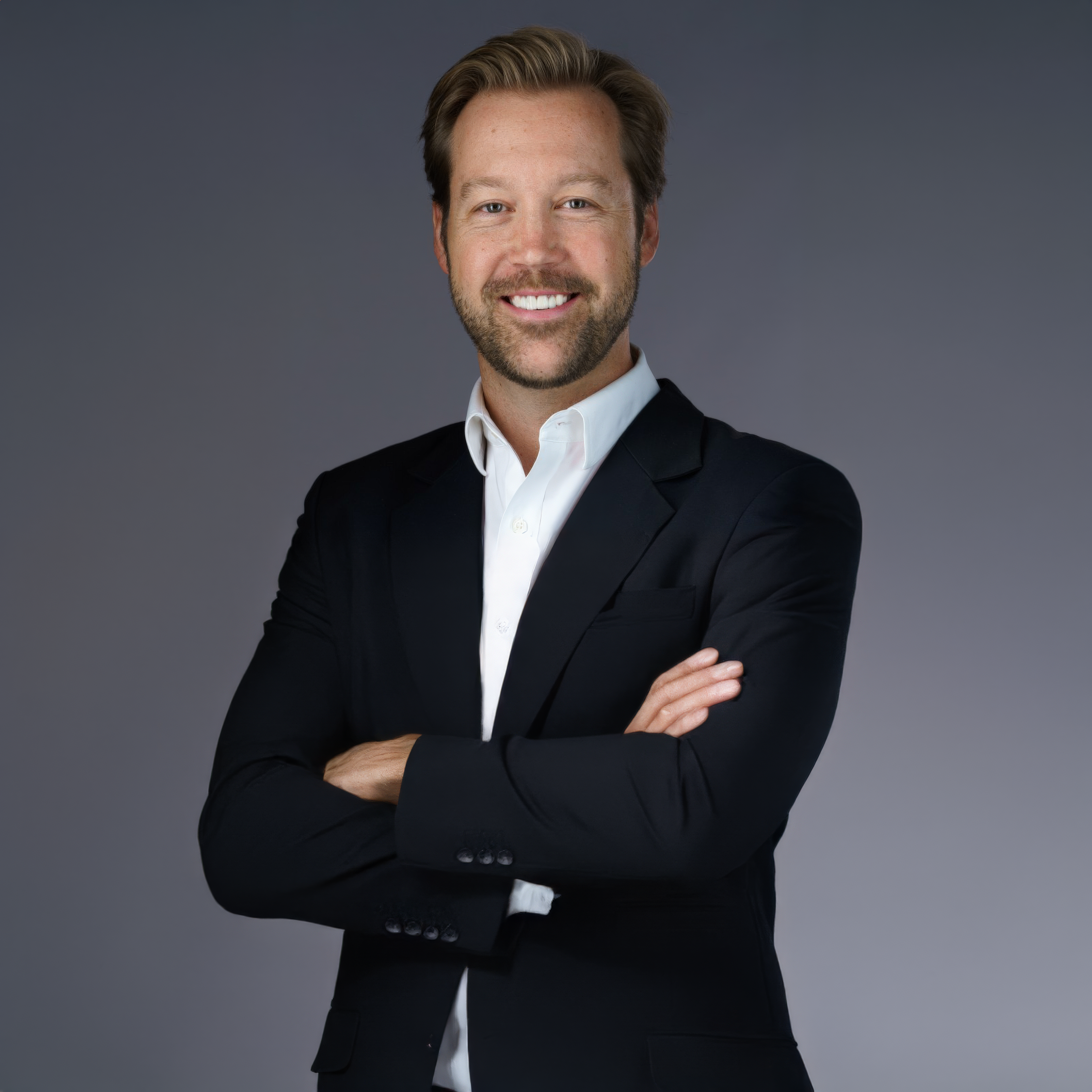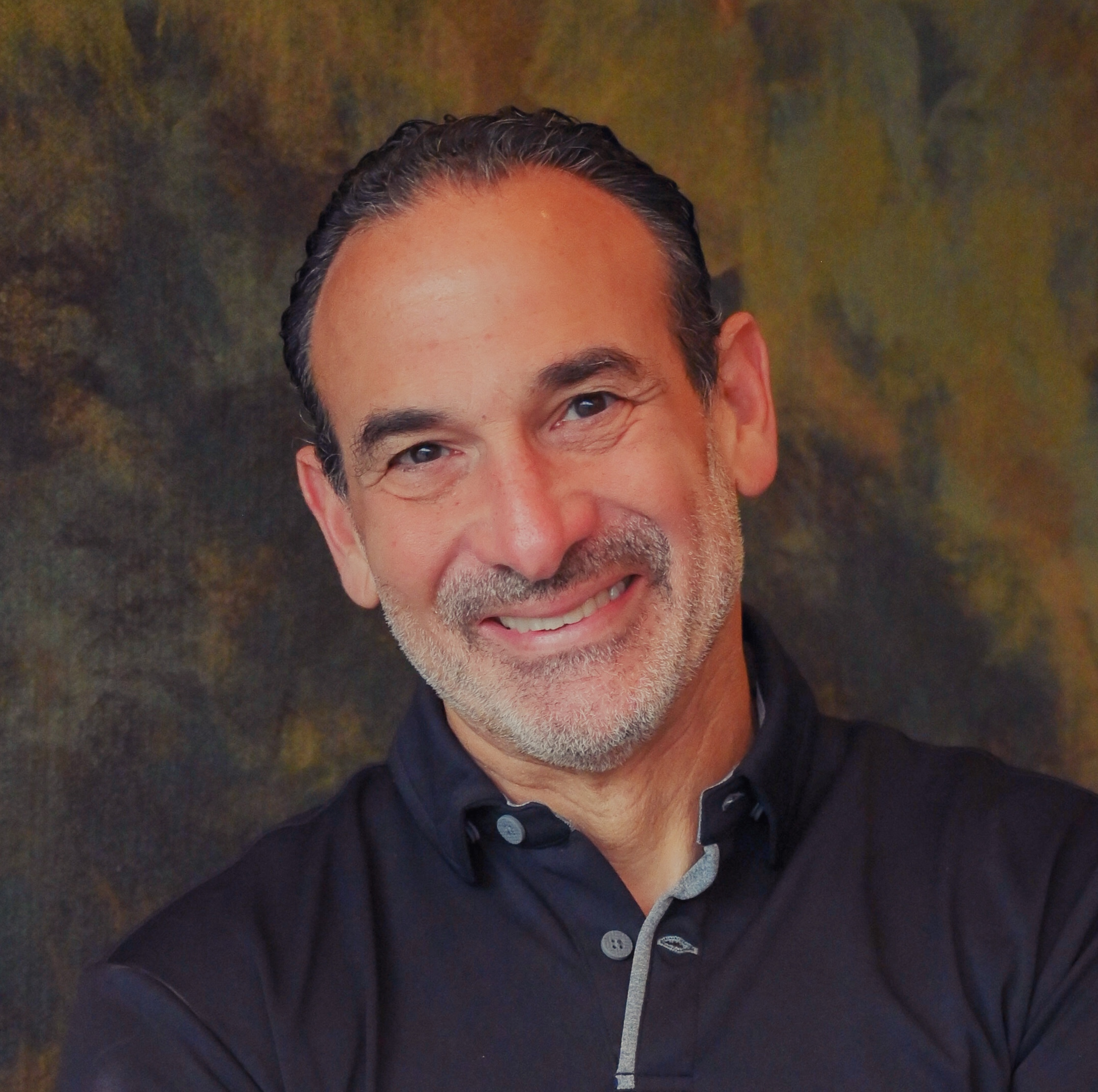RV: (00:07)
Hey Brand Builder Rory Vaden here. Thank you so much for tuning in to listen to this interview. We are so excited to bring you this information and wanted to let you know that, Hey, there’s no sales pitch coming. From anything that we do with this is all our value add to you and the community. However, if you are somebody who is looking for specific strategies on how to build and monetize your personal brand, we would love to talk to you and we offer a free call to everyone that’s interested in getting to know us and is willing to give us a chance to get to know them and share a little bit about what we do. So if you’re interested in taking us up on a free strategy call, you can do that at brand builders, group.com/summit. Call brand builders, group.com/summit. Call, hope to talk to you soon on with the show.
RV: (01:03)
So much fun to introduce you to Cameron, Herold this Cameron and I have been friends for years, we’ve shared the stage at events together. One of the things I love about Cameron is his pedigree of track record of success as a, not just an expert teacher, but an expert Dewar. So a huge part of his story was that he was a CEO, the COO of a company called one 800, got junk. And in six years he helped that company go from 2 million in revenue to 106 million in revenue. Eventually he left that business and became a personal brand. He’s a best-selling author of a book called double double how to double your revenue and profit in three years or less. He’s got other books. He’s also a great example of somebody that we think of as like has developed a real strong niche expertise around specifically serving a specific audience.
RV: (02:03)
COO’s the COO Alliance is something that he started, which is like the world’s largest community for number twos in companies, not the CEO, the COO, which is often a very underserved community that he identified and you know, found his uniqueness there and, and built that into something extraordinary. And he’s going to tell us all the secrets about how he did it, and he’s going to tell us for free, and that’s why he’s here. Welcome Cameron, Herold.
CH: (02:32)
Rory. Thanks for having me, but I appreciate it. Yeah, man. So my first chronic question for you is you know, we’ve got a lot of people in our community who are like coaches, consultants, et cetera, but I love your story of like, you kind of came out of, I don’t know if you call it the corporate world more of the entrepreneur world, but that’s gotta gotta be a shift from going. I’m a COO, I’m an employee that has a job every day, too. I’m going to build a personal brand, teaching people my expertise. Can you just talk a little bit about what happened, when did it happen? How did, like, how did that transition start for you?
CH: (03:14)
It’s interesting. So it’s an interesting, you mentioned coaches, I’ve been coaching entrepreneurs for 31 years. Wow. Since before coaching was a thing I had coached 120 entrepreneurs by 1993. All of the, all of these companies that I was coaching all had real, real businesses with real employees and, and we’re actually in two countries as well. So I’d coached a lot of entrepreneurs 30 years ago. And I also, I started to build one 800, got junk with my best friend who was the CEO. It was then going to be the fourth company that I’d helped build. But the other three, I was very much behind the scenes as a second and Columbia command or a very, very senior leader in one of the two. I was a very senior leader. The other two, I was second in command. And in all three, I was very behind the scenes.
CH: (04:03)
So my name was never really affiliated or attached to the brand. And I decided when I joined 1-800-GOT-JUNK, I was the 14th employee walking in the door. When I left six and a half years later, we had 3,100 employees system wide, but I knew on day one, the only way I was going to do it was either to have equity or to have brand equity. And I needed my aim to be attached to the brand because I wasn’t going to do it for the fourth time and have nobody know what I did so very, very early on. Yeah. So it was very much by design that I knew my equity play was going to be more valuable having my name attached to what I’d done versus having equity in the company.
RV: (04:43)
See, that’s awesome. Like I’ve never even thought about that as like, like when I think about personal branding, what we do, I always think about it as like, Hey, you know, either start your own business or did you do it to grow a business, but even inside of a company, it’s like the value of building your own brand and reputation and being associated with that company is equity value. Yeah.
CH: (05:06)
And then it got to the point where it actually became embarrassing last year where the founder had written a book called WTF. Brian was always one of my best friends. And in the book beat you up, willing to fail. When I started reading it, I was like, I just hope he mentions me. I hope he says, thank you to Cameron somewhere in the book. And, and then like on page three, he mentioned me. And then on page six, he mentions me and then on page 12 and I’m like, okay, good. You mentioned me were awesome. Thanks so much. And we get to the end of the book and I’ve been in there like seven or eight times, but no one else on the leadership team had been mentioned with the exception of the new COO who I’ve known for 34 years. Cause we started a fraternity together and he mentioned Eric, but I realized that the others who had helped build the company had fallen into the shadows much.
CH: (05:55)
Like I had fallen into the shadows and Gerber auto collision and Boyd auto body and college pro painters. And you bartered.com. And I just didn’t want that to happen again. So I was pleased that that was, but it was by design, right? So the way that I did it was making sure that I did the speaking events for the company, but I was very outward facing much like Harley Finkelstein is today as the second command for Shopify, a very outward facing COO or Sheryl Sandberg, very outward facing CEO for Facebook versus a lot of CEOs are very inward facing and they’re only known inside the company. I wanted the outward brand as well. So it was, it was a lot of speaking events for the company in the early days. And as we scaled, and then it was a lot of press interviews and generating press interviews. We had 5,000, 200 stories written about our company in six years, independent stories. And this was all before social media existed. So it was how do you build a brand with speaking and with PR coverage was how we did it.
RV: (06:53)
Interesting. So even as an employee, there’s just that value to building the personal brand, being out there, being in the public eye. So then
CH: (07:05)
Certainly being the one taking credit for things, but just being the one, explaining how we as a team were doing it, you know, I didn’t have to be taking credit for what my team was doing, but I could explain how we were doing what we were doing. Right. So very much like your guy Kawasaki did with Apple, you know, that he has described himself as technical evangelist for Apple. But what most people don’t know is there was a meeting that Steve jobs had that’s the guy Kawasaki was sitting in and Steve said, as of today, all of you, every single one of you employees, your title is technical evangelist. Like go talk about the brand. So guys like, it. I’m getting business cards that say technical evangelist. And he built his entire brand off of becoming a spokesperson for the company when the reality is every employee is a spokesperson for what you’re doing most just don’t stand up and talk about it.
RV: (07:57)
Awesome. Love that. Okay. So you guys, so you exit the business and then by my best friend, awesome.
CH: (08:07)
Yeah, my, my best friend fired me one morning after six and a half years on good terms, but he’s just like, look, you’re the guy that took us from 2 million to a hundred million. You’re not the guy to take us from a hundred million to a billion. So I left the company and took four months off. And, and for four months I just journaled and wrote lists and mind maps and tried to figure out what I love doing and what did I not like doing and what was I good at and what do I suck out and what gives me the energy and what drains me of energy and what I came up with that was, I love speaking and I love networking and masterminding and I love coaching. And outside of that, I’m great in a lot of stuff, but I don’t love it.
RV: (08:50)
And so that led you to go and Hey, I should, I should take this personal brand, like make it my income generator.
CH: (08:58)
Yeah. And I really started to look at, you know, I love being the person who helps the entrepreneurs make their dreams up and you know, even why am I on your podcast is to help you and your listeners, why I built one 800, got junk, was to help Brian. He was my best friend. He was my best man at my wedding. Three months before I joined him, I joined him to help him grow his company. Coaching entrepreneurs has always been, I love coaching them and helping them. So I just wanted to build a brand around us and build my name around being that CEO whisper, you know, the one who was just whispering and every CEO’s ear and giving them the shortcuts to scale their companies.
RV: (09:34)
Yeah. And that’s interesting because, you know, I hear people refer to you as like the CEO whisper specifically in that like entrepreneurial environment. You and I shared the stage at EO events. I think that’s every time we’ve shared the stage, which I think has only been twice, has been at an EO event. And but you’re yet your audience, you kind of, you kind of, you know, exploited this vertical of the seat. Oh, Whoa. So was that, was that deliberate or like, how do you, how do you reconcile those
CH: (10:08)
Very deliberate? See, I hadn’t played the COO four times, right? So I was in the COO role and I kept showing up at EO events and YPO events and Vistage events and genius network events and Maverick events and all these amazing events for entrepreneurs. But I didn’t fit in. I wanted to get into the nitty gritty and talk about the operations of the businesses I was building. So I realized that there were a hundred groups for entrepreneurs, but there, there were groups for marketers and lawyers and engineers and doctors, lots of association, but there was no association or organization or a mastermind group for the second command. So I started one for the COO. It was called the COO Alliance. But if I grow the CEO’s skills and if I grow the CEO’s capacity, they’ll grow their own entrepreneurs company. So it’s completely consistent with my core purpose. And it was just a need that wasn’t happening. But I was listening to my customers. I was coaching Bob glacier from acceleration partners and his COO. And then I was coaching Tucker max, and his COO. And I was coaching. Then like all these CEOs with their CEOs that I was coaching and I realized their CEOs were the ones doing it. I needed to really coach them on how to do it. I needed to coach the CEO on what needed to happen. Right.
RV: (11:23)
Huh. But that’s just like one of the things we say at brand builders all the time is your most powerfully positioned to serve the person you once were. And you’re such a great example of that, of going, I was a CEO, a COO, I understand their world. I am that person. Holy moly, nobody is servicing this group. I’m going to do it. I’m going to start it. And that is that.
CH: (11:46)
It was also because I listened to my customer and I gave them what they needed instead of me trying to create something and market it to a group that doesn’t exist. They were all wanting and starving for more information and starving to talk to each other. So I just, I actually got 10 of my second in commands together from companies that I coached, pulled them together for two and a half day weekend. And they all wanted to keep meetings. So I’m like, let’s just start this thing. It’s like my books, I’ve written five books, but none of them, I didn’t have this desire to be an author desired, but my clients wanted more information. Like how do I get more press coverage? You landed 5,000 stories. How do I get it? So I just wrote a book and here there’s the content. Like I gave them the how to guide in every book.
RV: (12:29)
So it was more like it wasn’t going, Hey, I’ve got an idea for a book. It was more going, Hey, my clients have a need for information. And that was the Genesis of the book.
CH: (12:39)
That’s it? Like I have two others that I’m working on right now. One is on the highs and lows and CEOs and why most entrepreneurs ride this manic bipolar rollercoaster. And how do we, how do we ride that in a better way? And then the second is about building that CEO, COO relationship, that real two in a box model. And it’s, again, I don’t want to be a writer. I don’t like writing, but I like sharing my ideas because it helps so many people.
RV: (13:04)
And can you tell us a little bit like your, about your business model now? Okay. So you, you know, we know that you’re a speaker and you get paid a speaking fee. Okay. You know, you know, you get your, your rights and books and make some money from that. But like as a personal brand, what’s the, what’s the primary revenue model. Is it the COO Alliance?
CH: (13:23)
It’s a few. So if I, if I was to take you through what my funnel might look like, my revenue funnel, the top of my funnel is all the press that I generate for myself. So it’s podcasts, you know, speaking events it’s and sometimes being paid to speak, but all of that is, is press right. So all of the press coverage and then being paid to get press coverage is one, all of my books and selling, you know, tens of thousands of copies of each of my five books gets more revenue, but more brand building as well. And then my coaching of CEOs and their teams, because I’m paid, my coaching rate is $2,700 an hour. So I’m paid a good rate for the year to coach these people. And then I have the COO Alliance, which is really a business in and of itself that is, you know, already really revenue, positive and scaling. And then I have referral income. So I have, you know, I spent 14 years knowing who the best M and a firms are the best executive search firms, best copywriting firms, PR firms, fractional CFOs, fractional CMOs. And I refer companies to these groups. And then I just get checks in the mail from those relationships and those introductions.
RV: (14:27)
Yeah, yeah. Essentially that’s the whole, the whole brand builder model is, you know, we have a bunch of affiliates that we pay them a lifetime referral fee just to basically come on in and talk to their audience and do a free thing. And then anyone that comes from it, I mean, it’s incredible. It’s crazy how powerful that is.
CH: (14:45)
I’m going to number one, referral source to describe, you know, for booking the box Lewis, Howes is one of your clients is he’s the number two referral source in the book in a box right now it’s called scribe. I’ve got four of my coaching. Clients are working with this one, that one M and a firm to help them exit and they’ll get huge exits. And then I get nice referral fees. And then the last thing that I do is all of my coaching clients three years after their coaching ends, they have to write me a bonus check for what coaching was really worth when I was coaching them. So, yeah. So it’s based on, on an idea that the true value that they generate doesn’t generate during coaching. It generates in the years following coaching, when they actually implement all the ideas they’ve learned. So three years after we finish our coaching engagement, they have to cut me a bonus check for what they feel the value of the coaching really was.
RV: (15:38)
Wow. And it’s not, not set. It’s just, it’s based on what they feel like it was worth.
CH: (15:43)
Yeah. I have a guy right now who like, every time I talked to him, he goes, that was just a McLaren. He goes, that was a Ferrari. Thank you like this. He’s like, I know I’m writing some big checks here. You know, one of my clients went from 4 million to 52 million in four years. Another one of my coaching clients that I coached for six years, three years ago, he raised $255 million from Warburg Pincus. One of the top investment banks, I’ve helped four companies sell for 150 million or more. So there’s, there’s really nice income there when I focus on their needs and not worry about the check, the check comes later.
RV: (16:21)
So and that’s, that’s one of the other things I wanted to ask you about. So one was just a little bit about your story as a personal brand. I think that’s really fascinating to go that you’re getting like referral income as a percentage of just these introductions you’re making to these high value connections and what that is worth and that’s worth a lot. And but the other thing was, I actually wanted to talk about scaling a business. Okay. Because personal branding is, is interesting. You know, a lot of times people get into it and it’s like, Oh yeah, I’m gonna make some money. And then they start making money. And then it’s like, okay, they’re, they’re building their notoriety. And then they hit like this one to $3 million threshold like this ceiling. And they go crap, I’ll never get past this, this level.
RV: (17:08)
If it’s all about me and then it’s going, okay, how do I get from 3 million to 10 million or that eight figures? And I think it’s like, when I think of you just as my friend, it’s like, you are someone I put in that category of going okay. If I need to talk to someone about shifting my mindset from that, you know, seven figure to the eight figure nine figure mindset. You’re like the guy. So what do personal brands need to do if they want to make that leap? Not everybody does, but if they do want to go, I want to turn my personal brand into a real business. What switches do we have to flip?
CH: (17:47)
So I can give you, I can give you four been chomping at the bits. I, I, they both, all four of them came to me really, really quickly. So it’s interesting that you said from 1 million to 3 million, I don’t know if you’ve ever heard me talk about the ones and the threes, but the ones in the threes, the natural hurdle points in the company. When you go from one employee to three, everything’s different, and then you go to 10 employees. Now you have like a manager somewhere and you go to 30 employees. You might have a few managers. You go to a hundred employees. You don’t know the names of everybody. You go to 300 employees, you’ve got internal politics. You’ve got to like, and then from the, on the dollar side, a hundred thousand to 300,000, okay. Now you’ve actually got a real business. You’ve replaced a wage. Then you go to a million. Well, now all of a sudden you’ve got taxes to take care of. And you’re trying to figure out ways to Mont, like to minimize tax. And you’ve probably got employees and issues. Then 3 million, you’re dealing with banks and credit facilities and then 10 million and 30 million, a hundred million. So there’s these natural inflection points that happen. So the key is to get over.
RV: (18:42)
So one thing on that, can I stop you on this? Because I’ve never heard you say that, but I’ve heard other people quote that, but they they’ve always said, I heard somebody wants talk about, so are you, can I officially start citing you as the, the originator of the ones and threes? Because I love that. We talk about that.
CH: (19:02)
I’ve been talking about the ones and threes for ages, because it’s just this natural. I visualize everything. As a series of hurdles, I used to run hurdles. When I was in high school, I ran 400 meter hurdles. And I pictured myself as having to go over these hurdles. But the hurdles keep getting bigger. Right? As, as we were building 1-800-GOT-JUNK, you know, we had six consecutive years of 100% revenue growth, six years in a row. We D we doubled the size of the company. Every, it was like pushing a snowball up a Hill with one hand, like you had to climb your way up the mountain and the snowball kept getting bigger. So the hurdles keep getting bigger and you need to anticipate what happens at each hurdle point to scale your company, or you get stuck at the hurdle, right? So I’ll give you a couple of the core lessons I would give are the first one.
CH: (19:47)
If you don’t have an executive assistant, you are one. So every single person, who’s a thought leader or a brand that one of the very first roles you need to hire as an executive assistant or a fractional or part-time executive assistant to get all the stuff off your plate that has less than a $25 an hour job, $50 an hour job. Why do you think that my effective hourly coaching rate is 2,700 an hour. My speaking events are 30,000 or 5,000 for zoom. So I shouldn’t be doing anything that’s less than 2,500 bucks an hour. Like nothing. I should delegate everything except the stuff that is in my hourly rate. So executive assistants that first one second one is recognizing the ones in the threes and the tens and the hurdle points. The third is to delegate everything except genius, right? And to really look, to get stuff off your plate, just because you couldn’t do it just because you’re capable of doing it, just because you’re good at it doesn’t mean that it fills you with energy and the more of your day that you can filling up with energy as you’re working in your business, the more that positive energy just continues to spiral upwards.
CH: (20:53)
So it’s about getting stuff off your plate. It needs to get done, but not by us, right? So that’s, it’s kind of like, can you be that lazy entrepreneur and delegate everything except genius is huge. And then the fourth one, and this is a really powerful number that people need to understand when you’re running your own business. When you go from being a solo preneur to, to, to building it into a business, you’re only going to get paid a third of the time. Like only a third of my time. Am I going to get paid for speaking or paid for coaching? Another third of the time I’m dealing with stuff with my clients. I’m getting prepped for an event I’m prepping for coaching. I’m thinking about my clients. I’m making referrals, whatever, but I’m doing some unpaid work. And then maybe 30% of my time, I’m actually doing sales and marketing, trying to find more clients.
CH: (21:40)
So if I’m only going to get paid a third of the time, I need to charge three times what I think I’m going to charge to end up at the end of the year with what I want to make. So here’s what I mean by that. Let’s say you want to earn a hundred thousand dollars a year just for easy math. Let’s say a million dollars a year. If you want to earn a million dollars a year, that means your hourly rate. If you worked 40 hours a week, 50 weeks a year, you would be getting paid $500 an hour for 40 hours a week, 50 weeks a year generates a million dollars in income.
RV: (22:09)
Okay. Slow down here. Just a little bit on the math cause I’m, I’m gone. Okay. So a million dollars a year is how much
CH: (22:17)
Is $500 an hour. So you can do the very quick math $500 times 40 hours a week, times 52 weeks generates a million dollars. Okay. Got it. But if you’re only getting paid 30% of the time and 30% of the time you’re working on the business and not getting paid for it. And 30% of the time you’re at finding new clients. That means you need to charge $1,500 an hour because you’re only really going to be billing out at about 14 hours a week. To end up with a million dollars a year. The reason most consultants never make enough money is they charge the hourly rate. They used to get paid. And then they realized that the end of the year, they don’t get paid for 40 hours a week. When they’re still trying to find work, you’re not charging enough. You got to charge more. One of the very, very first things I did at 1-800-GOT-JUNK was raised our prices by 40%. One of the, one of the first two weeks I was there. You know, like, what’s your speaking fee. I know you’re going to tell me, and I’m going to have to raise mine again. But what do you charge for your speaking?
RV: (23:16)
25 grand for a, for a one for a one hour. It’s 25 grand. And we’re doing, we’re doing 7,500 for a virtual.
CH: (23:24)
Okay. There you go. I need to change my virtual keynote. Cause five grand. I’m underpricing myself. Every time you think about it, you can raise your bar a little bit. And what I can do with that extra money is like, yeah,
RV: (23:33)
Well, our friend Dorsey Wright, every time I talked to Dorsey, I have to go crap. I got to tell my fees.
CH: (23:40)
I helped Dorsey with some time that guy used to check his suitcase at the airport. I’m like, dude, you can’t your suitcase and do 130 speaking events a year. But yeah, he’s, he’s doing like 136 speaking events a year at 50 grand each.
RV: (23:54)
Yeah.
CH: (23:55)
When you charge more than you can spend more on your website, you can spend more on your coaching. You can spend more in the masterminds, you’re in, you can spend more on your brand and you can spend more on your marketing. But if you don’t charge enough, you don’t have enough to spend on everything and you’re not making it up.
RV: (24:09)
So what about when you first start though? Like how do you, cause that’s hard, right? Like if, if you first start, if you’re just beginning, do you go set my price based on what I think I’m worth? Or do I take what I can get or do I just figure out mathematically here’s how much I need to make at the end of the year. I know I’m only going to get paid a certain, like, how do you calculate that in the beginning?
CH: (24:31)
I never negotiate price. I always add value. So my speaking event is 30,000. Oh, you can’t pay me 30,000. Well, my speaking event is still 30,000 for me to fly to you. But the night before I’ll do a dinner with you and some of your CEO friends, it’s 33,000. Okay. Well that was 30,000 plus a dinner. I’ll give you some books as well. Like I’m going to, I’m going to add some value, but the price is going to stay at 30,000. What most of the rookies do is they tend to negotiate their fee down too quickly. And they just, what they haven’t learned is that entrepreneurs negotiate. It’s just, they do it for sport, for entrepreneurs, negotiate for fun. It’s like being a Mexican and negotiating for the trinket on the beach. You just know that you don’t pay the first price. Right?
RV: (25:15)
I mean, yeah, it’s interesting. I’m trying to just go, you know, some of these are just like literally mental switches that you have to flick in, like in your brain in order to scale and to move. And
CH: (25:32)
These are the mental switches that I learned as a young child. So I had, I did a Ted talk or a TEDx talk it’s on the main Ted websites. If you go to ted.com, you look up raising entrepreneurial kids. I did a talk 10 years ago about all these different businesses that I ran before. I was 18 years old and all the business lessons I learned. So I learned how to negotiate when I was eight years old, selling licensed protectors door to door. I learned how to hire my first employee when I was nine. And I hired a neighbor to do deliveries for me, for the newspapers. So I would like the tips, but he didn’t deliver them during the week. You know, I learned all these lessons. So for me, the mental switches have always been there. Cause I was groomed as an entrepreneur at a very young age.
RV: (26:16)
W w w w one last little question here, which is not something I was planning on asking, but when you look ahead at the future of personal branding, right? Like you, you, you hang in a lot of these circles, you know, we hang in some of the same circles. You mentioned something that like masterminds and you know, a lot of these best-selling authors, you know, a lot of these high dollar speakers specifically on the valuation, this is totally, totally out of left field. One of the things I’ve been trying to wrestle with and think about is I’m just going, like, you know, there’s such a market for buying and selling companies, but I think there is an emergence of a market of buying and selling email lists and members and subscribers and podcasts downloads. Is there anything that you see related to the future of the valuation of certain assets, of personal brands being bought and sold like values of email lists or just anything really in general, like your mind on the future of PR PR personal branding
CH: (27:22)
Flip side of that actually, which is that most of the people trying to build personal brands, unless they’ve actually done what they are saying they can do are going to get filtered out because of AI or because of, it’s almost like if you go on Twitter today and you see a post that Donald Trump did in 30% of them are getting flagged by this is not true. I think we’re going to start seeing filters built into our AI or built into our social platforms that allow us to scan for who the frauds are really quickly. Like we’re going to just know that Roy vaping is the real deal. He’s running a real consulting company. You know, Jason Dorsey is the real deal. Like I’ve known Louis House for 14 years. I had lunch with, with us before he could afford to buy lunch in New York. It’s 13, 14 years ago.
CH: (28:04)
He’s the real deal with like what he built off LinkedIn with Sean malarkey, his old partner, like you’ll Victoria Lubbock is the real deal. Like you’ll know who these real business people are that are also the thought leaders. And then you’ll know the ones that have just become good marketers, but don’t have the content and they’re marketing somebody else’s content. So I think you’re going to have to be really 60 minutes per week. You have to be able to have people scratch the surface to know you’ve done what you say you can do. You’re not just out there quoting somebody else’s quotes or selling somebody else’s stuff. So I think there’s going to be a lot less of the good marketers selling somebody else to stuff. And there’s going to be a lot more or a better truer brands of people that have actually done it before.
RV: (28:51)
Interesting love that. We you know, I would welcome that both for us and our clients and just do it the right way. Play the long game don’t take advantage of people think hard, work hard, come up with meaningful stuff. And it’s like, it’s, it’s no, that that will pay off. And in the future, AI may be a part of that. It’s filtering people out.
CH: (29:14)
Well, that could be a really killer app right now that could be created that the, a layer or an API that ties in with like Facebook. Imagine if I go on somebody’s Facebook and then this little app that it’s like, Oh, you’re on Rory Vaden site. Oh, fraud, Rory has never done it before, or he’s amazing. And it gives us a score. But instead of me needing to load your name in and checking to see what your Instagram followers are real, like there’s apps right now where you can do it, but you have to do it manually. Imagine if it was a layer that oversaw everything right now, for us almost like a, like one of the coupon codes, like, Hey, a coupons available. Imagine if every single person’s profile you clicked on it overlayed and showed you what their real brand value actually was. So you knew who the frauds were and who the others. Weren’t
RV: (29:57)
Interesting. Yeah. I mean, I think about that this, I don’t know if this is still around, but there was a thing called the clout score, the K O U T I. And that was actually kind of like that, where it was like when you had to go into cloud to see it. Right.
CH: (30:13)
Imagine if I go click on John ruins profile and, you know, from Giftology and Facebook and it’s like, Whoa, cloud score 98. I didn’t even think to look, but it shows me his cloud score and his factor in his swearing value or whatever. It’s like, well, that’s an interesting,
RV: (30:30)
Yeah. And you know, it’s interesting too. And somebody like John Ruhlin is interesting because if you look at, if you looked at like his number of followers, you might not be that impressed. But if you saw the guy’s personal Rolodex, not just the Rolodex, but like the people who he actually knows and who he actually is
CH: (30:51)
Brick walls for him. Like the people that I just introduced John to a major, major, major player three hours ago, like a major player. Right. And if you think about who that guy knows, yeah. That can be some pretty powerful stuff.
RV: (31:05)
Yeah. It’d be interesting. Interesting to see. Well, I love that you know, Cameron, where should people go if they want to learn more about you? I mean, certainly anyone listening that has a second in command, which all of us should, if we’re building a real personal brand you know where to learn about COO Alliance and the stuff that you’re up to.
CH: (31:22)
Yeah. Check out the second command podcast for shirts and amazing podcasts where we have amazing guests. We will never interview the CEO. We only interview the second in command, the COO Alliance, for sure. And then all five of my books are available on Amazon, audible and iTunes. And then I guess my personal brand website, just go to Cameron, harold.com. You’ll see everything wrapped up there.
RV: (31:44)
Awesome. Well brother, thanks for challenging. My thinking, I feel like every time I talk to you, there’s something that’s like, it really stretches, stretches me to think in a new way and appreciate you making some time for us, man. And we just as always wish you the best.
CH: (32:00)
Thank you. The feeling is mutual. I get stressed every time as well. Appreciate it.

